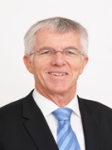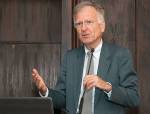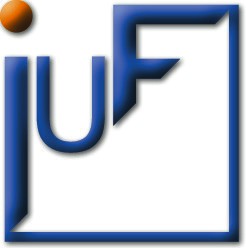
Peter Boettke is a University Professor of Economics and Philosophy at George Mason University; the BB&T Professor for the Study of Capitalism, Vice President for Research, and Director of the F.A. Hayek Program for Advanced Study in Philosophy, Politics, and Economics at the Mercatus Center at GMU.

1993 gründete Bouillon die Beratungsagentur Public Partners und war danach viele Jahre für europäische Denkfabriken tätig, u.a. für das Brüsseler Centre for the New Europe (1998-2004) und die New Direction Foundation (2010-2015). Inzwischen hat Bouillon seine diversen Funktionen gegen seine Forschungsaktivitäten eingetauscht. Er lebt und arbeitet heute als wissenschaftlicher Autor und Übersetzer in Trier.

Leiter des Büros der Friedrich-Naumann-Stiftung für die Freiheit, Tschechien; vormals Leiter des Liberalen Instituts der Friedrich-Naumann-Stiftung für die Freiheit, Potsdam

President of IES-Europe and Editor-in-Chief of the Journal des Économistes et des Études Humaines, Pierre Garello is Professor of Economics at the Faculté d’Economie et Gestion of Aix Marseille University in France. He has published various articles on Austrian economics, law and economics (especially competition law and contract law). He is the editor-in-chief of the Journal des Économistes et des Études Humaines, a scholarly review dealing with economic, legal, philosophical and political issues, in the tradition of the French Classical Liberal School. He is also at the center of a liberal network in Europe and is the coordinator of the European liberal think tanks Resource Bank. He is directing research for IREF, a think tank that promotes tax competition and sound public finances.

Director of economic opportunity programs, The Philanthropy Roundtable. Prior to joining the Roundtable, Jo worked at the Institute for Humane Studies, the Capital Research Center, and the Property and Environment Research Center, where she frequently combined explorations of philanthropy and markets.

Leiter des Büros der Friedrich-Naumann-Stiftung für die Freiheit, Israel. Zuvor war er für die Stiftung unter anderem im Baltikum, den USA und Nord- und Südkorea tätig.

Robert Nef, geboren 1942, lic. iur der Universität Zürich, leitete von1979 bis 2007 das Liberale Institut in Zürich und ist heute Mitglied des Stiftungsrates. Er präsidierte von 2002 – 2016 auch die Stiftung für Abendländische Ethik und Kultur in Zürich. Von 1991 bis 2008 war er Mitherausgeber und Redaktor der Schweizer Monatshefte. Robert Nef ist seit 1998 Wissenschaftlicher Beirat des Instituts für Unternehmerische Freiheit.
Er publizierte mehrere Bücher und zahlreiche Aufsätze und Artikel zu politischen Grundsatzfragen in Fachzeitschriften, Sammelbänden und Tageszeitungen. Seine 2002 publizierte Monographie mit dem Titel „Lob des Non-Zentralismus“ wurde in mehrere Sprachen übersetzt. Er ist Mitglied der Mont Pèlerin Gesellschaft, und die Friedrich August von Hayek Gesellschaft würdigte seinen konsequenten Einsatz für liberale Werte 2008 mit der Verleihung der Hayek-Medaille und 2016 wurde er in Hamburg mit der Roland Baader Medaille ausgezeichnet.

Mark Pennington has been Professor of Political Economy and Public Policy in the Department of Political Economy since January 2012 and is now Head of Department. Prior to joining King’s he taught for 12 years in the School of Politics and International Relations at Queen Mary College, University of London. He holds a PhD from the London School of Economics and Political Science. Mark works at the intersection of politics, philosophy and economics.

Tom G. Palmer is the George M. Yeager Chair for Advancing Liberty and Executive Vice President for International Programs at the Atlas Network and is responsible for establishing operating programs in 14 languages and managing programs for a worldwide network of think tanks. He is also a senior fellow at the Cato Institute and director of Cato University.

Seit 1999 Professor für Volkswirtschaftslehre, insbesondere internationale Wirtschaftsbeziehungen der Universität Hamburg. Zuvor war Professor Straubhaar Direktor und Sprecher der Geschäftsführung des Hamburgischen WeltWirtschaftsInstituts (HWWI).

Senior Research Fellow und Vorstand, Walter Eucken Institut, Freiburg. Bis im Jahr 2010 leitete Prof. Vanberg das Walter Ecken Institut. 1995 bis 2009 hielt Prof. Vanberg die Professor für Wirtschaftspolitik der Universität Freiburg inne und 1988 – 1995 war er Professor of Economics, Department of Economics, und Editorial Director, Center for Study of Public Choice, George Mason University.

Roland Vaubel is Professor emeritus at the University of Mannheim, Germany. He has received a B.A. in Philosophy, Politics and Economics from the University of Oxford, an M.A. from Columbia University, New York, and a doctorate from the University of Kiel, Germany. He has been Professor of Economics at Erasmus University Rotterdam and Visiting Professor of International Economics at the University of Chicago (Graduate School of Business). He has been Professor of Economics at the University of Mannheim from 1984 to 2016. He is a member of the Advisory Council to the German Federal Ministry of Economics and Technology. He is associate editor of the Review of International Organizations and a member of the editorial boards of the European Journal of Political Economy, Constitutional Political Economy and Cato Journal. He is also a member of the Academic Advisory Council of the Institute of Economic Affairs, London.

Professor für Soziologie an der Universität Bonn seit 1997. Forschungsinteressen sind „Rational Choice“- und „Public Choice“-Theorien; international vergleichende (auch quantitative) Analysen zu Wirtschaftswachstum, Einkommensverteilung und Gewaltanfälligkeit – sowohl für westliche Industriegesellschaften als auch für Entwicklungsländer; Kriegsursachen und Kriegsverhütung; Zivilisationsvergleiche unter besonderer Berücksichtigung Asiens.
